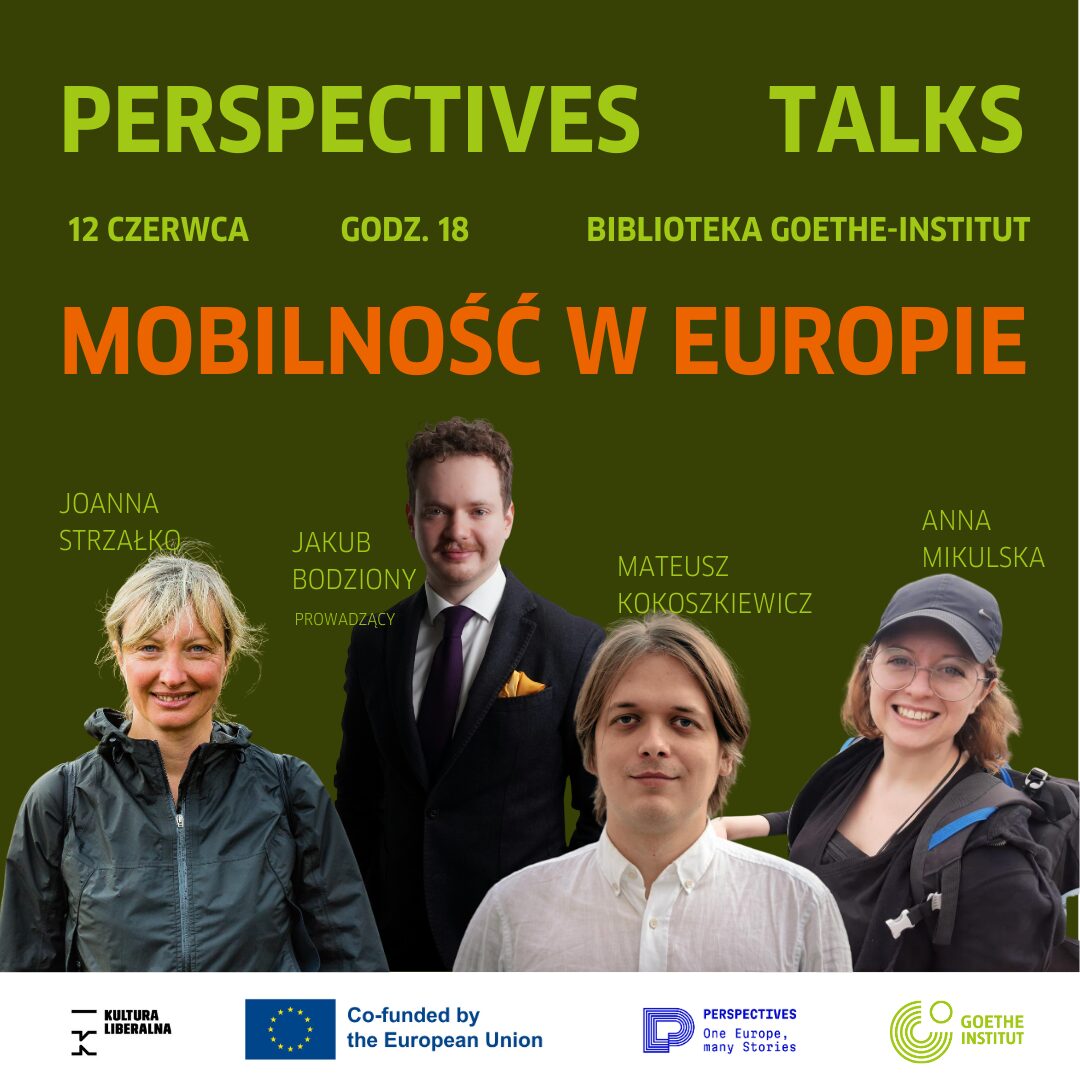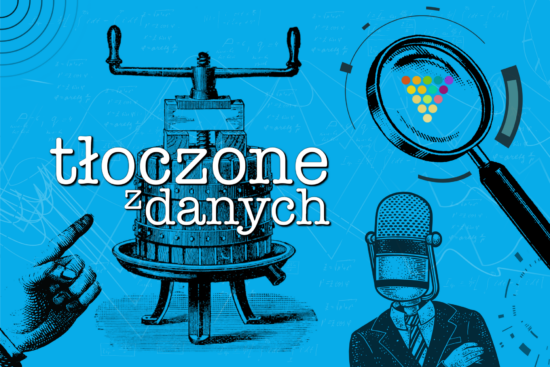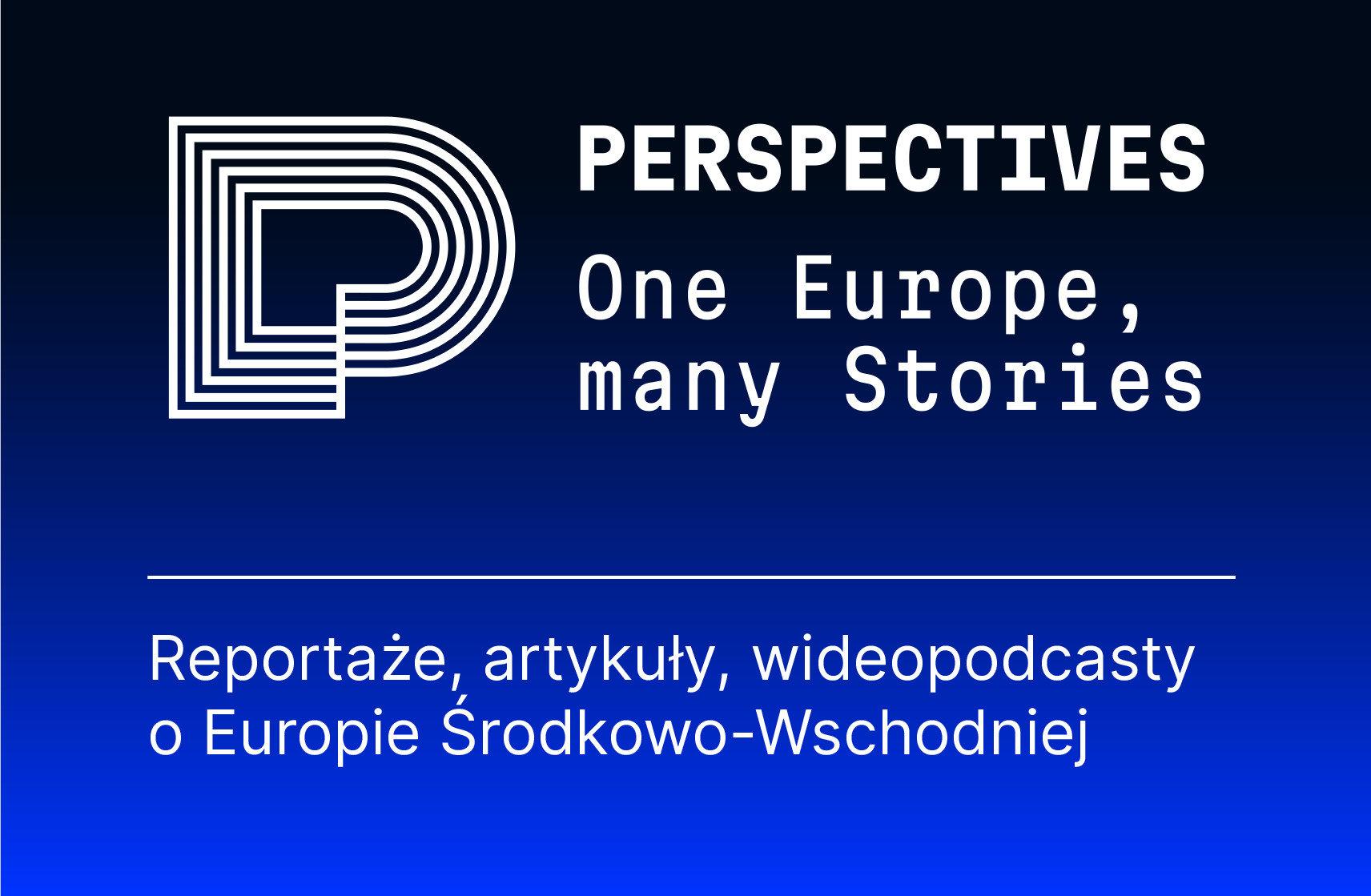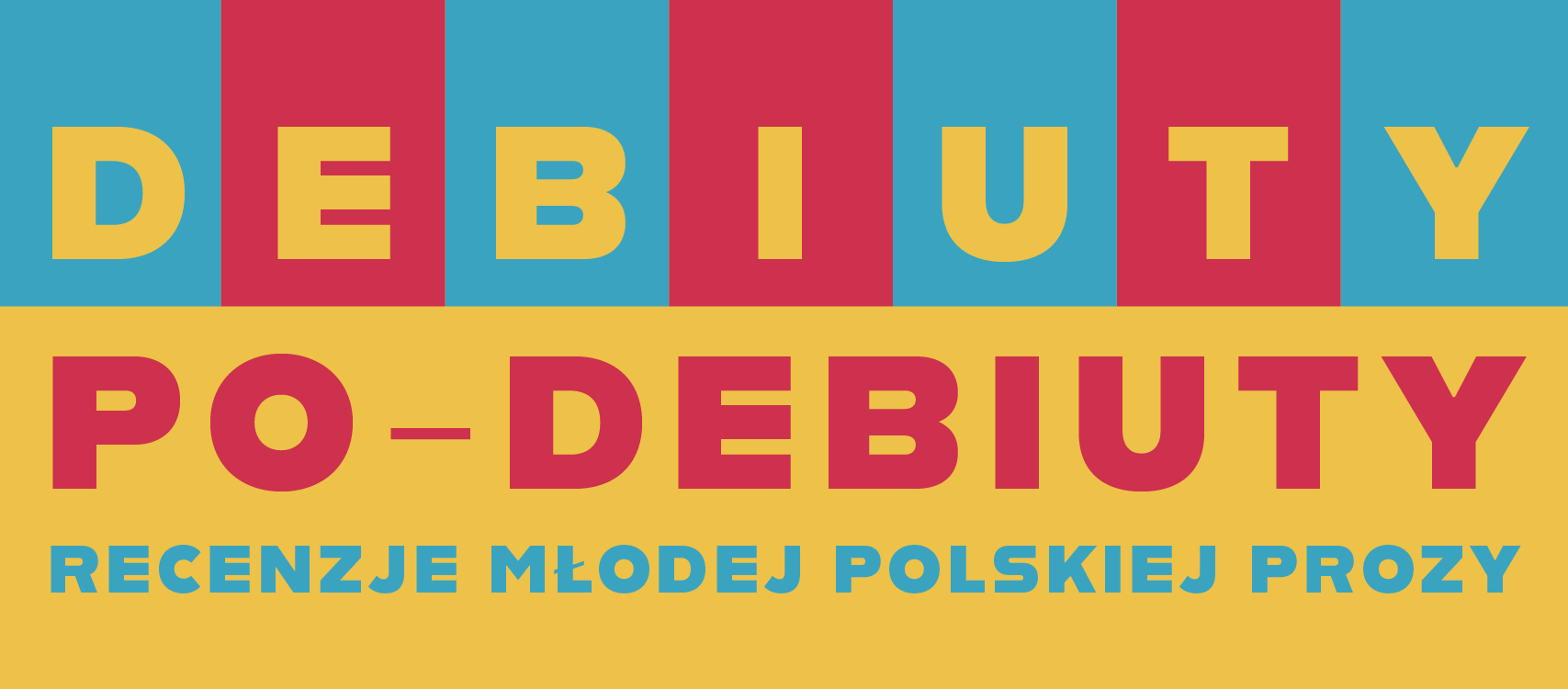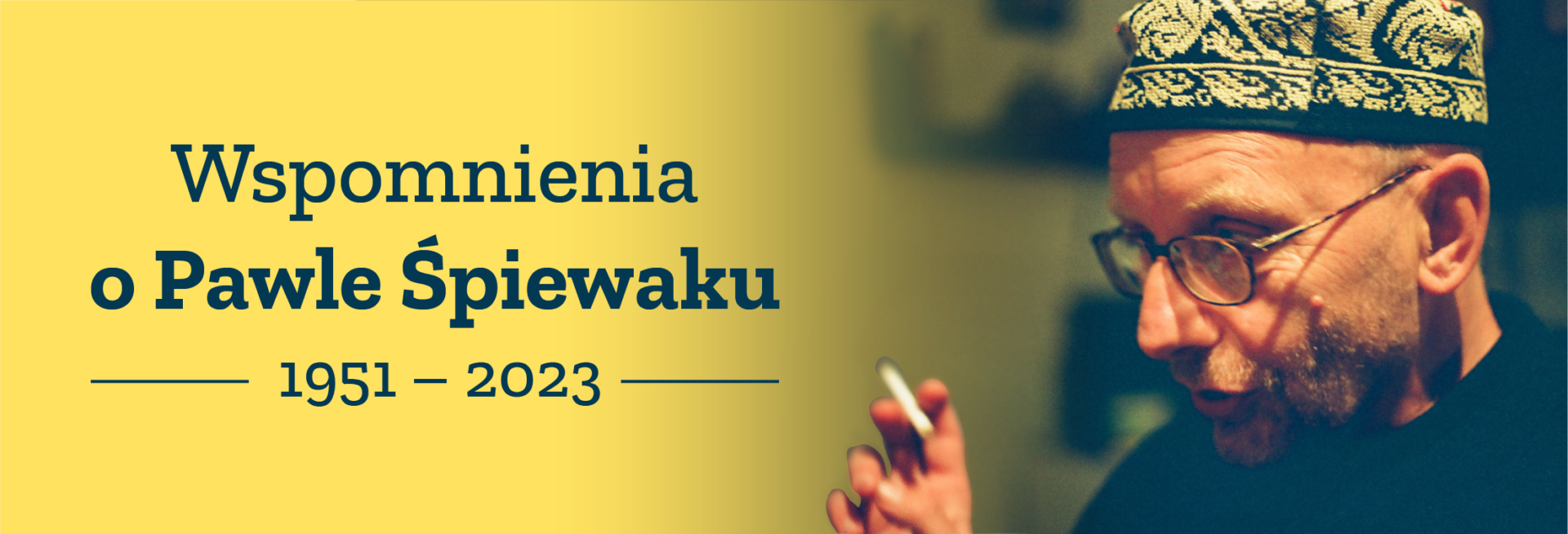KULTURA LIBERALNA > Pytając > IMATA: On what...
IMATA: On what is missing in between
On what is missing in between
Active citizens see the overarching issues provoking global concern. Is the shared list of problems enough for us, the global civil society, to unite and counteract? Are we ready for the challenge? And do we really see over the global North-South axis? Anna Mazgal asks Katsuji Imata, Deputy Secretary General-Programmes at CIVICUS: World Alliance for Citizen Participation
Anna Mazgal: What are the issues that people unite upon globally? Is there an agenda for global civil society?
Katsuji Imata: Definitely! The vision for global civil society, however, has been going through some transformations. The discussion gained prominence in the early 1990s, when envisioning the global civil society became possible with the advent of the internet, which made it possible to connect people all over the world with very little cost. Global campaigning organized by civil society, such as the landmine campaign, has started to create real impact on issues of concern for civil society. In general, I think development, human rights and environment have been the three main areas of global civil engagement. These issues are of interest of both civil society and intergovernmental organizations. Also many donors put their resources to that. At the same time, some international NGOs dealing with development grew and became powerful financially and politically.
Does global agenda mean big challenge?
Both the development as well as environmental NGOs have some successes campaigning at the global-level decision making. But some scholars, including John Gaventa for example, point out that it is difficult to prove that the engagement at the global level has an ultimate long-term impact. In his research he emphasizes the growing awareness and recognition of what is important and to what people have not been paying attention to until recently: it is the engagement at the national level that pushes global agenda forward. Thinking globally is good, but we need to start with the reality on the ground.
How can we connect the national level to the global level?
It is still an issue! I guess we may have been trying to skip the space between the local and the supranational. John Gaventa refers to it as “the missing middle”. It is that area where the many key policies are developed that have real impact on people’s lives (i.e., nationally) and they have global implications.
Whom can we talk to at the global level and what are the challenges there?
These are institutions such as the UN, World Bank, WTO and other inter-governmental institutions that have channels with civil society. The G8 is now becoming G20 and the governments make pledges, the Copenhagen agreement (Cop-15) is around the corner with its commitments. The limitation is, for one, that the governments don’t always keep their promises. Moreover, in the G20 there are only twenty countries out a 190 plus, when the stake of the discussions there has much larger implications than the twenty countries involved. When it comes to development issues, poverty, human rights violations, climate change – everybody is affected by it. So that is why it is important to pay attention to all these worldwide.
It seems that there really is a middle missing…
Yes, the missing middle makes sense, because we need to pay more attention to what any government is pledging and doing, and what policies are created around these pledges. The awareness that the civil society active on the national level should also make sure the commitments that touch global agenda are followed upon, is growing.
But are we sufficiently equipped to carry the message forward?
Ten years ago, the first vision was that the global civil society is this jumble of campaigners, movements and activists from anywhere, that are willing to have a say on the global level. That was the first phase in the formation of the understanding of what global civil society is. It can be anyone and anything who claims to be a part of the global civil society. But in the end of the day the voices are diverse and there is no structure. So I guess we are now in the next phase, where the notion of the global civil society still exists, but we do need some structure by which those voices are recognized. Then we do need to think of legitimacy and accountability, whose voice we represent. On a more general level the global civil society is not in the framework of representative democracy, it is a feature of participatory democracy. There must be a way of making sure you are accountable to your constituency and you do pay attention to what is happening on the ground.
Is it possible to envision what happens within the next ten years? Will the structure emerge? Or maybe we will become even more atomized because diverse interests will be transmitted by smaller, nationally-based units?
I think we observe movement in all these directions, however it is hard to predict which one will prevail during the next ten years. But I guess the vision emerging from this process is that we do need some more coordination and consolidation of priorities and agenda within the civil society, but not ‘a lot’ more because diversity is at the heart of civil society activities. A couple of things are becoming clear: one, whatever we do, we need to put the issue of the human rights in the center. No matter if we are discussing environment, development, better social service, we need to make sure the human rights agenda stays at the forefront. Two, there is a growing awareness stemming out from the global financial crisis. There is a need for a much better model of global governance. It is so scattered, financial and economic issues are taken up only by the financial institutions that do not really have any ongoing interaction with civil society, nor any accountability mechanism to people. What is more, people don’t really understand what is happening in these institutions. Then we hear about massive bail-outs in the US and Europe and do not feel that we can have any influence over these processes. As civil society we need to engage more and participate in the transformation of the global governance, including the economic aspects.
Do you think it is a realistic expectation that organizations will be able to come up with recommendations for the global governance that could then be successfully included in the official plan of transformation?
This is something we need to work harder on. In June there was a UN conference on financial and economic crises and lots of NGOs that work on the global level came to discuss it.
And impact-wise?
The meeting happened, there were outcome documents, but the follow-up may not be sufficient. Still, this is the responsibility of these organizations, including CIVICUS, to communicate the relevance of this discussion at any level – local, national as well as regional, because everybody is impacted by that. We, the globally active, should figure out a way of communicating effectively what we can do about it. And the national-level NGOs should take this message to their constituency. This way people will get the message why these issues of global concern are important locally. Not only do people need to receive the message from their governments but also from civil society, from the global through national to local level.
On many levels we certainly observe a divide between the Global North and the Global South. Do you notice that within the global civil society?
That issue is a tough one. Definitely there is some divide. People in civil society working at the global level these days have at least a sentiment of being politically correct. In this context it means that the people make sure that the civil society from the South is appropriately represented in discussions about aid effectiveness for example. I call it political correctness, because it is increasingly harder to discern the ‘North’ from the ‘South’ and we might have a tendency to find solace in featuring a ‘Southern’ face as a spokesperson.
How we can reinforce the inclusion then?
We used to have a clear idea that an organization is one from the North or the South. But now many international NGOs are becoming more and more mixed. They might have had their headquarters in the North but now they move it to the South. Also, many of those based on a franchise system make sure the leadership within a country rests with the people from the local community. I think though, some criticism made against these organizations still stands because of the decision making. It tends to be heavily influenced by the leadership in the North. They make use of the fact that they have the emerging leadership from the South but it is still in the middle of the transformation.
At CIVICUS we make sure that we work with the South, also because of the demand towards an entity such as us. Because people tend to see the global interaction within the civil society as dominated by the North, we try to change that dynamics. That has been the tendency of the last ten years or less but it is still in the works.
From what people can see when the look at the agenda of global engagement: development, poverty reduction, human rights, the superficial perception is that the Northern societies are those who give. And the Southern societies are the recipients of whatever comes from the North. What are the qualities that the South puts on the table, which we, the North, do not pay attention to see?
I guess it would be what we call participatory governance. Growing interest and more literature available showed these things happen a lot in the South. Now, not only do we learn from models and frameworks existing in the North, but also from Latin America for example, where the whole concept of participatory budgeting emerged. Latin America has a very interesting tradition of social movement and the history of faith-based engagement. Both on philosophical level and on the practical level a lot of these models are developed there. For example, the International Budget Partnership is a network that focuses on good practices around the budgeting issues worldwide.
Do you see these good practices transferred elsewhere?
Participatory budgeting was imported to Europe for example. Also South Africa is a good example with its truth and reconciliation committee. The South African model of post-conflict resolution have been studied by many.
For the concept of microfinance the global recognition came after the Nobel Peace Prize for Grameen Foundation. Presenting the achievements seems like another task for global civil society…
Yes, if we take out the bias of the people of the North, we see different models emerging around the globe. And what we need to do is the good job of capturing them and making sure that we all learn our lessons regardless of which part of the world they come from.
* Anna Mazgal, Ogólnopolska Federacja Organizacji Pozarządowych.
Skoro tu jesteś...
... mamy do Ciebie małą prośbę. Żyjemy w dobie poważnych zagrożeń dla pluralizmu polskich mediów. W Kulturze Liberalnej jesteśmy przekonani, że każdy zasługuje na bezpłatny dostęp do najwyższej jakości dziennikarstwa.
Każda i każdy z nas ma prawo do dobrych mediów. Warto na nie wydać nawet drobną kwotę. Nawet jeśli przeznaczysz na naszą działalność 20 zł miesięcznie, to jeśli podobnie zrobią inni, wspólnie zapewnimy działanie portalowi, który broni wolności, praworządności i różnorodności.
Prosimy Cię, abyś tworzył lub tworzyła Kulturę Liberalną z nami. Dołącz do grona naszych Darczyńców i Patronów!
PRZECZYTAJ INNE Z TEGO NUMERU
KOMENTARZE













